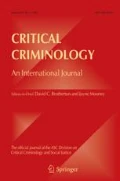When I took physics in high school, our teacher offered us US$1 for every error we found in the textbook. She had written the book and I delighted in the challenge. The goal had been for us to read closely enough to identify scientific miscalculations. I was not a very good physics student. But I was editor-in-chief of our high school newspaper. I found countless mistakes in the textbook’s grammar, punctuation and style, and I reveled in presenting my “findings” to my teacher.
On the plus side, I made enough money to buy gas for my 1979 Oldsmobile Cutlass Cruiser station wagon. With its V8 engine, the station wagon was a gas guzzler. But gas was cheap then (about US$1.13 or $1.14/gallon).
On the downside, I did not really learn much physics. So, when reading Nick Mamatas’s The Planetbreaker’s Son (2021:39), while in isolation after testing positive for COVID-19, I could not ascertain whether the following statement contained more science than fiction:
A mirror is a method of time travel, or at least transtemporal perception. ... [L]ight takes time to travel and human minds take time to interpret the information their eyes collect. A reflect is always a bit of old news, if only by the billionth of a second. If one could build a mirror the size of a planet and plop it a light year from one’s location, then peer into it with the aid of a sufficiently powerful telescope, one would see in the mirror-planet’s reflection a scene from two years prior.
What I can say, though, is that if we were to conduct such an experiment, the image of the world would be most perverse. Or so I hope we would look at it that way. So, I hope that what we experience two years from now makes early 2021 seem obscene.
Consider Wednesday, January 13, 2021. Donald J. Trump became the first American president to be impeached twice (Fandos 2021), while former Michigan Governor Rick Snyder was charged for his role in the Flint water crisis—the environmental disaster that contaminated the city’s drinking water, resulting in the deaths of at least a dozen people (Booker 2021). Well, maybe what is obscene is that Trump got to stick around long enough to be impeached a second time, to say nothing of his being elected in the first place. Maybe what is obscene is that Snyder was charged only with two counts of willful neglect of duty—both misdemeanors. Maybe “obscene” is not the best way to describe tepid and tardy responses to crimes of the powerful. So let me try again: fucked up.
Now, lest one think that this journal has become too irreverent, let me assure you of the research: there is a good case to be made for cursing and, in fact, research has found that swearing can enhance the effectiveness and persuasiveness of an argument (see, e.g., LaMotte 2021; Orlando 2020).
But as my high school English teacher used to remind me, “show, don’t tell.” And so, rather than pontificate or ruminate on the pros and cons of expletives in an academic journal, let me just turn things over to Dr. Rita Shah, who has orchestrated a special issue, “Centering the Margins: Addressing the Implementation Gap of Critical Criminology”—the first issue in Volume 29—that not only gives a big “FUCK YOU” to classism, homophobia, misogyny, racism, sexism and xenophobia, but which prescribes creative ways to “unfuck” (Leon 2021) ourselves.
References
Booker, Brakkton. 2021. Former Michigan Gov. Rick Snyder Charged In Flint Water Crisis. National Public Radio (NPR), January 13. Retrieved on January 27, 2021, from https://www.npr.org/2021/01/13/956592508/new-charges-in-flint-water-crisis-including-former-michigan-gov-rick-snyder.
Fandos, Nicholas. 2021. Trump Impeached for Inciting Insurrection. The New York Times, January 13 (updated January 25, 2021). Retrieved on January 27, 2021, from https://www.nytimes.com/2021/01/13/us/politics/trump-impeached.html.
LaMotte, Sandee. 2021. Why Swearing is a sign of intelligence, helps manage pain and more. CNN, January 26. Retrieved on January 26, 2021, from https://www.cnn.com/2021/01/26/health/swearing-benefits-wellness/index.html.
Leon, Kenneth Sebastián. 2021. Latino Criminology: Unfucking Colonial Frameworks in “Latinos and Crime” Scholarship. Critical Criminology: An International Journal, 29(1). https://doi.org/10.1007/s10612-020-09544-y.
Mamatas, Nick. 2021. The Planetbreaker’s Son. Oakland, CA: PM Press.
Orlando, Alex. 2020. Worried About Searing Too Much? Science Says You Shouldn’t Be. Discover, January 14. Retrieved on January 27, 2021, from https://www.discovermagazine.com/health/worried-about-your-foul-mouth-swearing-could-actually-be-good-for-you.
Author information
Authors and Affiliations
Corresponding author
Additional information
Publisher's Note
Springer Nature remains neutral with regard to jurisdictional claims in published maps and institutional affiliations.
Rights and permissions
About this article
Cite this article
Brisman, A. Editor’s Introduction to Volume 29. Crit Crim 29, 1–2 (2021). https://doi.org/10.1007/s10612-021-09555-3
Published:
Issue Date:
DOI: https://doi.org/10.1007/s10612-021-09555-3

